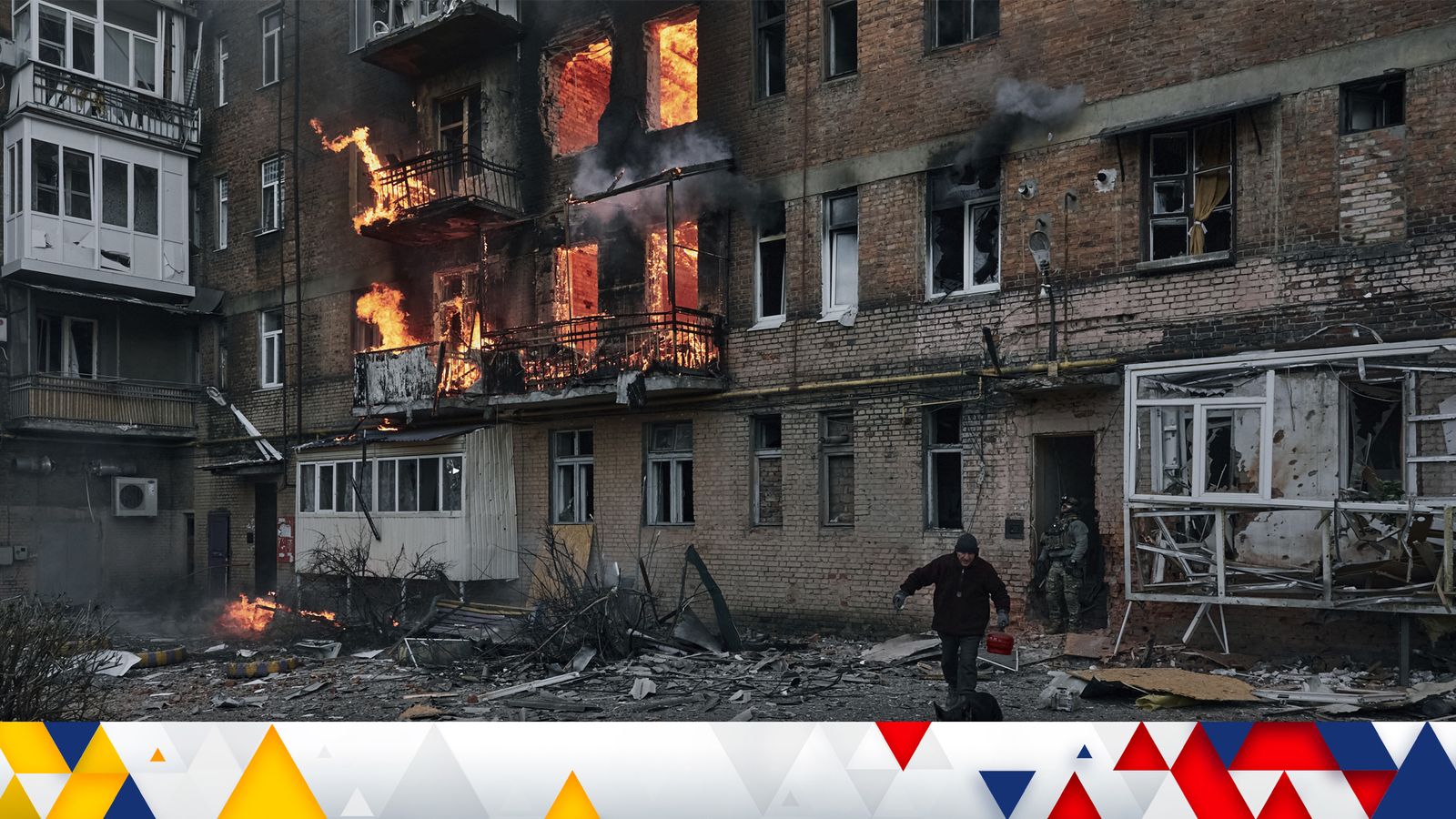The draft resolution from COP28 does not contain the words “phase out” with regard to fossil fuels.
The UN’s climate body published the proposed text of the deal early on Wednesday morning after negotiations massively overran in Dubai.
Instead of the phrase “phase out” the proposal discussed “transitioning away” from fossil fuels, beginning this decade.
If adopted, it would mark the first time in three decades of COP climate summits that nations agree on a concerted move away from oil, gas and coal – products that currently account for around 80% of global energy.
The document recognised “the need for deep, rapid and sustained reductions in GHG (greenhouse gas) emissions in line with 1.5C pathways” and called upon nations to take actions.
The actions suggested included:
• Tripling renewable energy capacity globally and doubling the global average annual rate of energy efficiency improvements by 2030;
Climate minister Graham Stuart making 6,313-mile round trip by plane for crunch Rwanda vote
The COP28 draft agreement in Dubai feels different – speculation abounds as to why
COP28’s draft plan will ‘reduce’ but not ‘phase out’ fossil fuels prompting uproar from island nations
• Rapidly phasing down unabated coal and limiting the permitting of new and unabated coal power generation;
• Accelerating efforts globally towards net zero emissions energy systems, utilising zero and low carbon fuels well before or by around mid-century;
• Transitioning away from fossil fuels in our energy systems, beginning in this decade, in a just, orderly and equitable manner so as to achieve net zero by 2050 in keeping with the science;
• Accelerating zero and low emissions technologies, including, inter alia, renewables, nuclear, abatement and removal technologies, such as carbon capture and utilisation and storage particularly in hard to abate sectors, and low carbon hydrogen production, so as to enhance efforts towards substitution of unabated fossil fuels in energy systems.
• Accelerating and substantially reducing non-CO2 emissions, including, in particular, methane emissions globally by 2030;
• Accelerating emissions reductions from road transport through a range of pathways, including development of infrastructure and rapid deployment of zero emission vehicles;
• Phasing out of inefficient fossil fuel subsidies that do not address energy poverty or just transitions, as soon as possible.
Please use Chrome browser for a more accessible video player
More than 100 nations had called for the phrase “phase out” to be used regarding fossil fuels in the resolution, but this language was watered down.
Intensive sessions went well into the small hours of Wednesday morning.
Then, the United Arab Emirates-led presidency presented delegates from nearly 200 nations a new central document – called the global stocktake – just after sunrise in Dubai.
It’s the third version presented in about two weeks.
The aim of the global stocktake is to help nations align their national climate plans with the Paris agreement.






